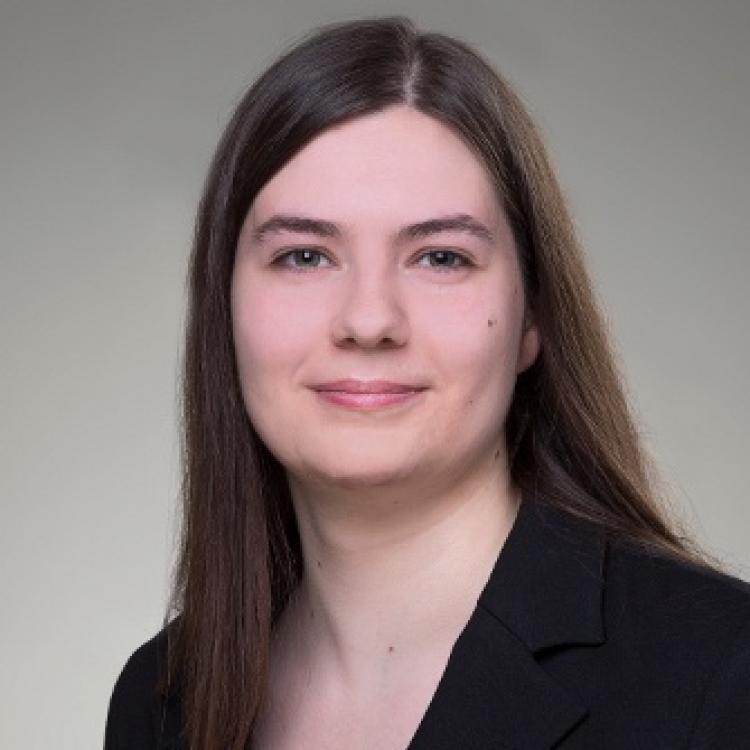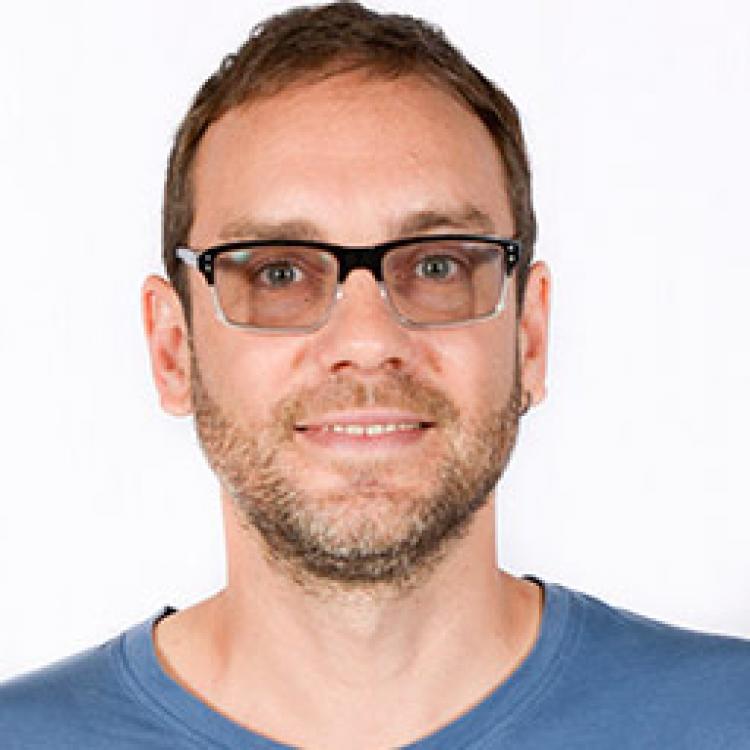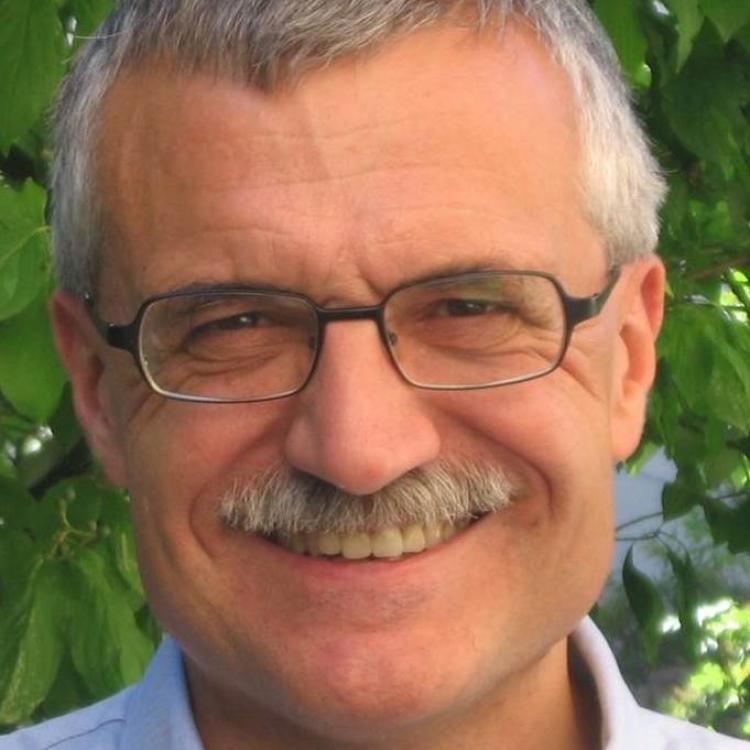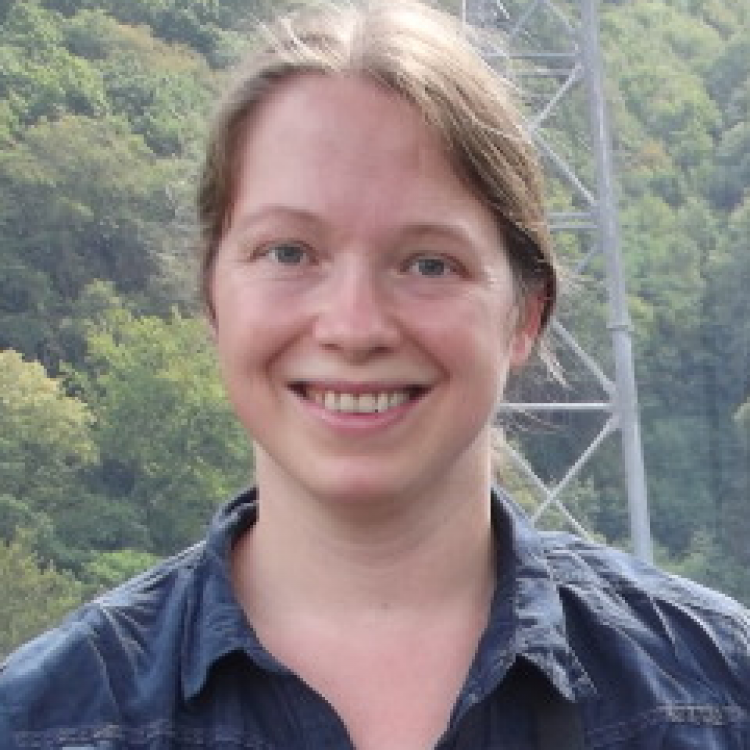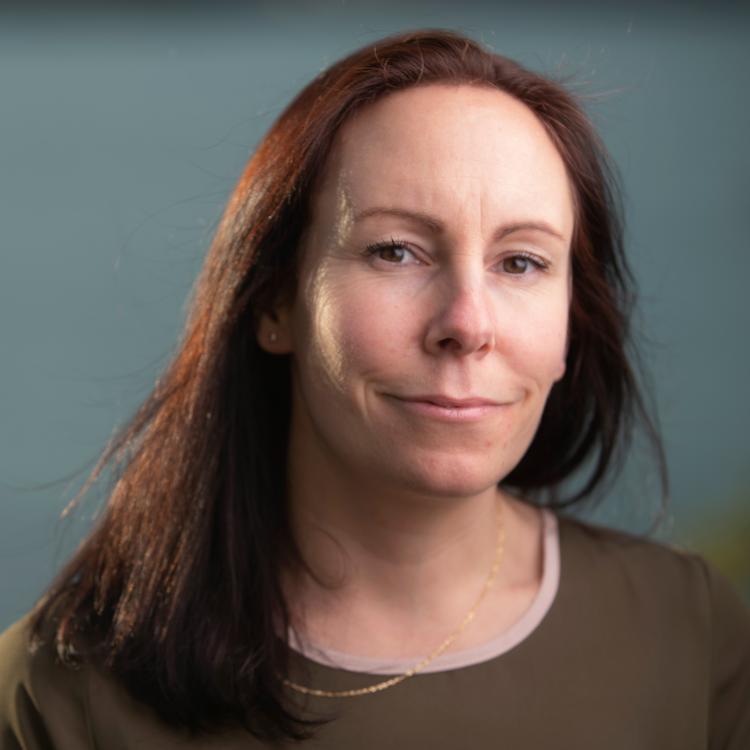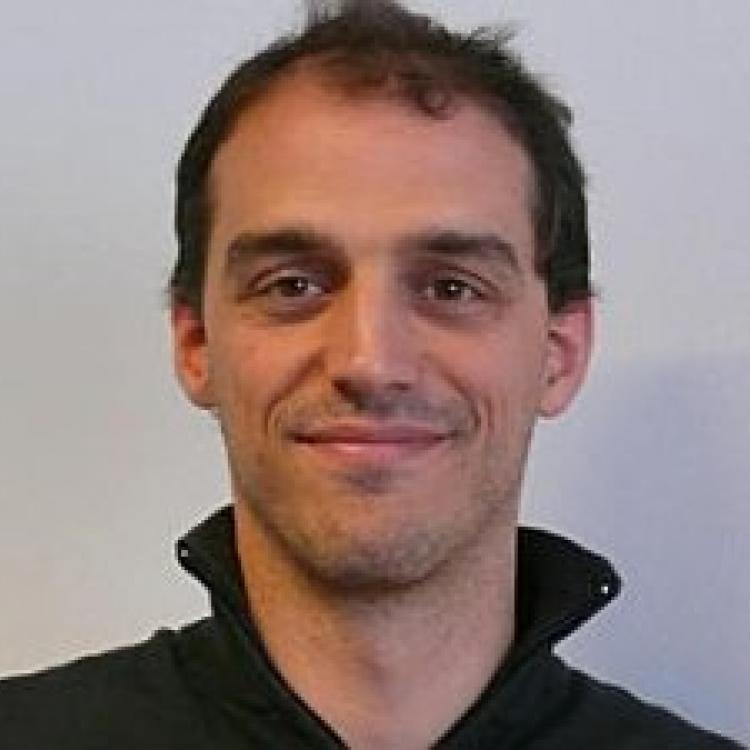4C uses existing and new observation datasets to better constrain long-term projections of the climate-carbon cycle system in the context of climate targets and remaining carbon emissions compatible with the ambitions of the Paris Agreement. Using the available CMIP6 simulations, emergent constraints on the carbon cycle will be developed to obtain observation-based improved understanding of the carbon cycle dynamics and biogeochemical feedbacks. In order to ensure that the emergent constraints are robust, these will be based on sound physical and mathematical principles, and tested ‘out of sample’ against models that were not used to derive the emergent constraint, using a recently developed approach. Reassessment of the Transient Climate Response to Cumulative Carbon Emissions (TCRE) in light of these new emergent constraints will be performed to also account for the warming induced by non-CO2 emissions. Emergent constraints and models’ skills will be combined to reproduce the historical record in order to provide original weighting of multi-model and large ensemble climate and carbon cycle projections. Our CMIP6+ ESMs will be used to explore original adaptive scenarios, starting from an NDC-compliant scenario for the first decade (2020-2030), followed by a “adaptive mechanism” where simulated climate change is diagnosed every 5 years and used to revise the emissions reduction needed to keep global warming below 1.5°C or 2°C. Emergent constraints developed in 4C will be used to further refine the estimates of remaining carbon budgets in these adaptive scenarios.
By the end of the project, 4C has the ambition to reduce the current uncertainty in TCRE by a factor of two.
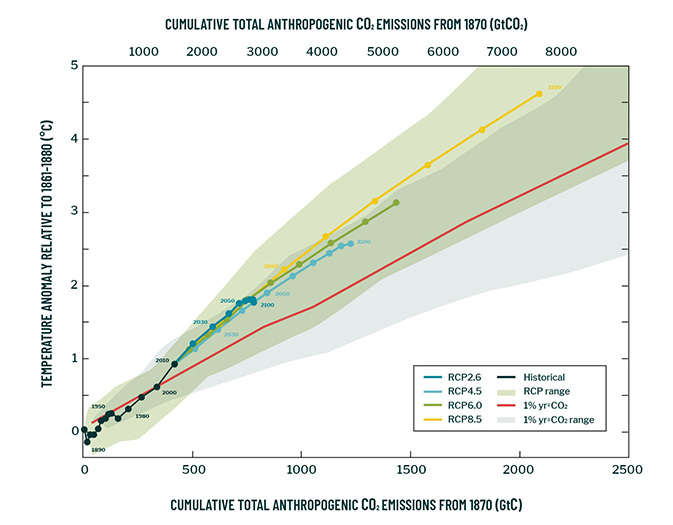
Uncertainty in the long-term carbon budget. Global surface temperature change as a function of cumulative CO2 for 1% per year CO2 increase (gray) and RCP scenarios (colours). Adapted from: IPCC AR5 WG1 - Summary for Policymakers (Figure SPM.10)

